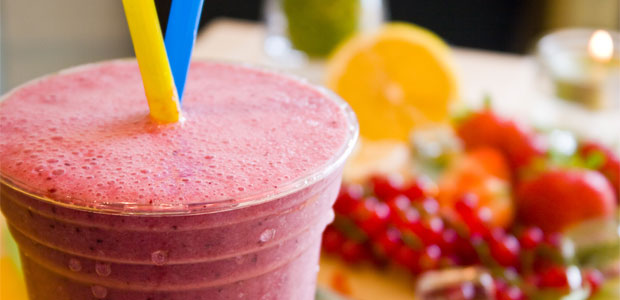Advertisement
Smoothie Power
The best in shake-and-go nutrition

When you’re in a rush, cooking breakfast can seem like a lot of effort. But there’s a solution to this nutritional dilemma that’s so easy you could do it in your sleep: make a smoothie.
Your body needs breakfast
If you skip breakfast, you’re less likely to get your needed nutrients. You’re also likely to snack more and pick junkier food options throughout the day.
Skipping breakfast is associated with a higher prevalence of overweight and obesity. This holds true for adults, youths and children.
A recent food symposium concluded that eating breakfast may reduce the risk of chronic diseases and is also associated with improved learning abilities and better school performance in children.
Nutrition to go
Whole food meal replacement smoothies are excellent for all ages and provide the protein, vitamins and minerals, essential fatty acids, fibre, antioxidants, probiotics, greens, and digestive enzymes that the body needs for optimal health.
Look for a whole food smoothie mix that offers at least two servings of vegetables, 2,500 mg of essential fatty acids, 10 g of complete protein, and 1 billion probiotic cultures per 100-calorie serving.
Vegetarian/vegan proteins in high quality mixes include organic green pea protein, sprouted brown rice protein, and hemp protein. For people with food sensitivities, it’s possible to find formulas that don’t contain dairy, gluten, soy, wheat, or yeast.
Some blends require only water and a swift shake to create a ready-to-go drink. Other meal replacements are heartier and do well with fruit, crushed ice, and/or a milk substitute from soy, hemp, or almonds.
Whether it’s for breakfast, lunch, or dinner, discover the nutritional star power of whole food smoothies.





